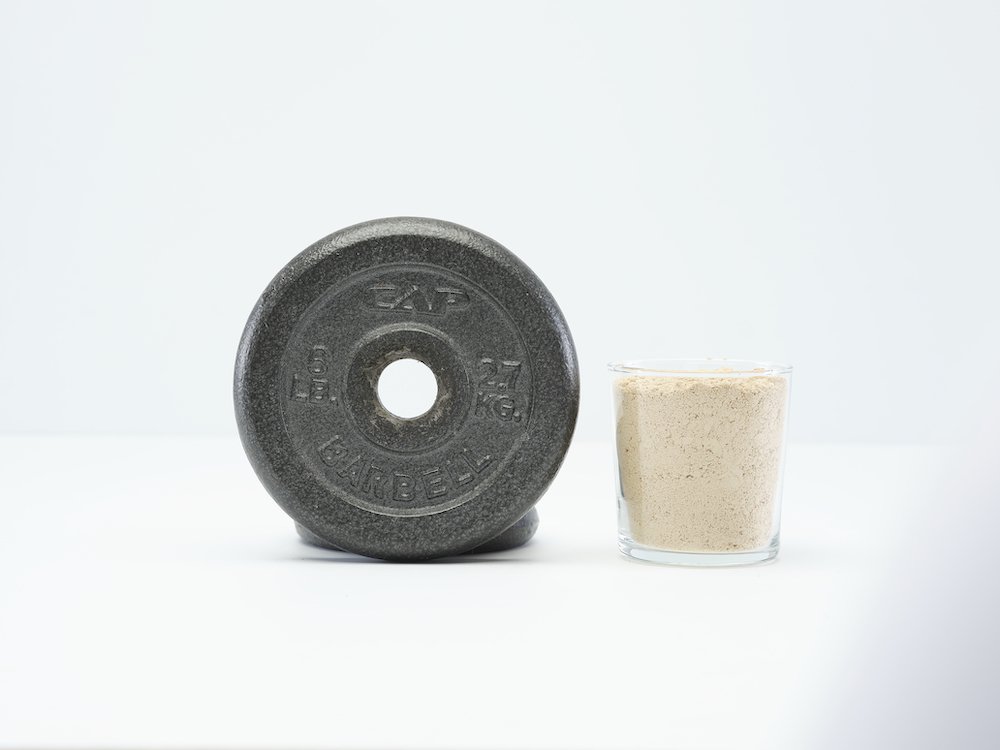









Diet is a practical place to start for consumers looking for ways to make life a little healthier. Most experts agree that protein is a must-have macronutrient. Protein supplies the body with building materials for everything from cell membranes to hair. It is also a great source of energy.
People tend to associate protein with meat, but consumers are quickly shifting towards other plant-based sources on the market. Nuts, for example, are rich in protein, as well.
Offering healthy products can start by formulating protein-packed foods. There are some surprising ways manufacturers can add protein into products to appeal to health-conscious consumers like in baked goods. Consider some deliciously healthy ways to replace gluten and get more protein, like almonds, in your products.
What Makes a Good Flour Substitute?
Flour is an essential ingredient for baking because it provides structure. During baking, flour mixes with liquids to create a framework for whatever you are making to hold the components together as a single unit. It doesn’t add much to the taste but provides texture and binding properties.
There is a science to flour creation that typically involves wheat gluten because it provides a firm structure. Flour can be made out of other proteins, though, but it does have to have certain qualities to be effective. A good flour substitute must have qualities similar to wheat flour, such as:
- Texture
- Binding properties
- Absorbency
- Neutral flavor
Using a flour substitute is a practical way to add nutritional value to baked goods, too. Adding nutrition, especially protein, is an effective selling point for many consumers.
Baking With Protein Powder
Protein powder is a good choice for crafting desserts like cake or cookies or other kinds of baked goods such as bread, pastries, pizza dough, or even pasta. It’s not a 1:1 substitution, though. Flour and protein powder have different properties.
The type of protein powder you choose makes a difference, too, as does your market. For example, those living a vegan lifestyle won’t want to use whey or casein protein. Some of the protein powders on the market do not have the quality to make an effective flour substitute.
Plant-based Proteins
Manufacturers looking for a natural protein that doesn’t come from an animal should consider plant-based options such as:
- Nuts
- Beans
- Broccoli
- Chickpeas
- Greens
- Lentils
- Seeds
- Peas
- Potatoes
- Quinoa
- Seaweed
- Soymilk
- Spinach
- Tempeh
- Tofu
Plant-based proteins can be high in fiber, vitamins, and other critical nutrients, according to the American Heart Association. They are also flexible enough that you can use them in a variety of ways, such as a substitute for the less-than-healthy white, processed flour.
Plant-Based Protein Powders
Plant-based protein powders are of a higher quality than whey or casein products. They don’t separate the protein out when creating them. They are often all-natural, too, meaning no artificial sweeteners and low amounts of added sugars. Instead, with plant-based protein powders, you get:
- An easily digestible protein
- Lots of fiber
- All-natural ingredients with names your audience can recognize
There are a variety of plant-based protein powders to choose from when baking. Some common choices are:
- Walnut flour
- Peanut flour
- Pistachio flour
- One of our favorites: Almond protein powder
The Best Flour Substitute on the Market: Almond Powder
Almond powder, or almond flour, is a staple product for paleo, gluten-free, vegan, and keto baking. It is both grain and gluten-free. It works for savory and sweet recipes and is especially effective in bread and pasta because of its binding quality. To make almond powder, manufacturers use finely ground almonds, which are all-natural.
What makes almond flour the best option? It is:
- Completely plant-based.
- Has a clean, neutral, and nutty flavor that works well for savory and sweet recipes.
- Offers texture and absorbency similar to flour.
- Adds nutritional value as it is very high in protein and fiber.
- More sustainable.
Other Types of Protein
Whey Protein
Whey protein comes from cow’s milk. It is the liquid byproduct of cheese and yogurt processing. Whey is also what nutritionists call a complete protein because it contains all nine of the essential amino acids the human body needs.
You can break whey protein down further into three types. All three come from the same core substance but undergo different processing methods. Types of whey include:
- Whey concentrate – Liquid whey processed into a powder with 80 percent protein by weight. It also contains carbohydrates and fats.
- Whey isolates – Liquid whey is processed into a powder with 90 percent or more protein. This is whey concentrate without the carbs and fat.
- Whey hydrolysate – Whey that is produced in a way that makes it easier to digest. Manufacturers predigest and partially hydrolyze the whey so it is less allergenic. This is the whey found in baby formula.
Most whey protein products on shelves contain whey concentrate, isolate, or a combination of both.
Casein
Casein protein is the compound that gives milk its white color. Whey protein digests quickly for energy however, casein protein is slower, which is why it is a common choice for muscle recovery after exercise.
The body breaks down and rebuilds muscles as you sleep. Since casein releases its amino acids slowly, they are available at the right time for muscle rebuilding.
Whey & Casein Protein Powders in Baking
For instance, when creating whey products, the proteins are separated from the whey. There is also a risk of an allergy. Anyone allergic to milk is allergic to whey and casein, too.
Whey protein powders often contain sugars, too. The sugar is added for taste or just to make them more calorie-dense. That extra sugar might make baked goods taste too sweet.
There are sugar-free casein powders. Casein powder is very absorbent, though. So you may need to add more liquid to the recipe if using it as a flour substitute. With casein protein powder, bakers often still use some flour just to get the proper structure for their baked goods.
Formulating High-Quality Products With Almonds
Almonds are incredibly versatile. They make more than just flour or protein powder. As a result, almonds are used in a variety of industries, including alternative medicine, culinary, and cosmetics.
Almonds can create extremely useful ingredients including:
- Almond Protein Powder: As mentioned above, almond flour/protein powder is one of the best flour alternatives on the market. You can go savory with pizza dough, pasta, and bread or sweet with cookies, cakes, and baked goods.
- Almond Paste: Almond paste or butter is made by roasting the almonds before milling them into a paste. Almond pastes are used in a variety of popular products, especially those in the non-dairy industry. From almond milk to almond cheese, the possibilities with almond paste/butter are endless.
- Almond Oil: Sweet almond oil is a byproduct of creating almond flour and paste. It is rich in vitamin E, magnesium, phosphorus, and even copper. That makes it a sought-after ingredient for cosmetic products.
The Best Almonds Formulate the Best Products
Harris Woolf Almonds, the world’s premier independent wholesale almond-product producer, creates a high-quality plant protein powder. We work with more than 200 unique farms and farmers to harvest sustainable, high-quality almonds.
Our manufacturing process starts with pasteurizing, roasting, and blanching the almonds. The blanched almonds are then ground down into a paste and pressed into a cake form before being ground down into a fine powder.
Almond powder is the right choice for the baker looking for a flour substitute and a healthy lifestyle. It is gluten and dairy-free, plus packed with vitamins, minerals, and nutrients that are good tasting and good for you.
Find out more today about the wholesale products we offer at Harris Woolf Almonds by visiting our website or contacting us for information.


